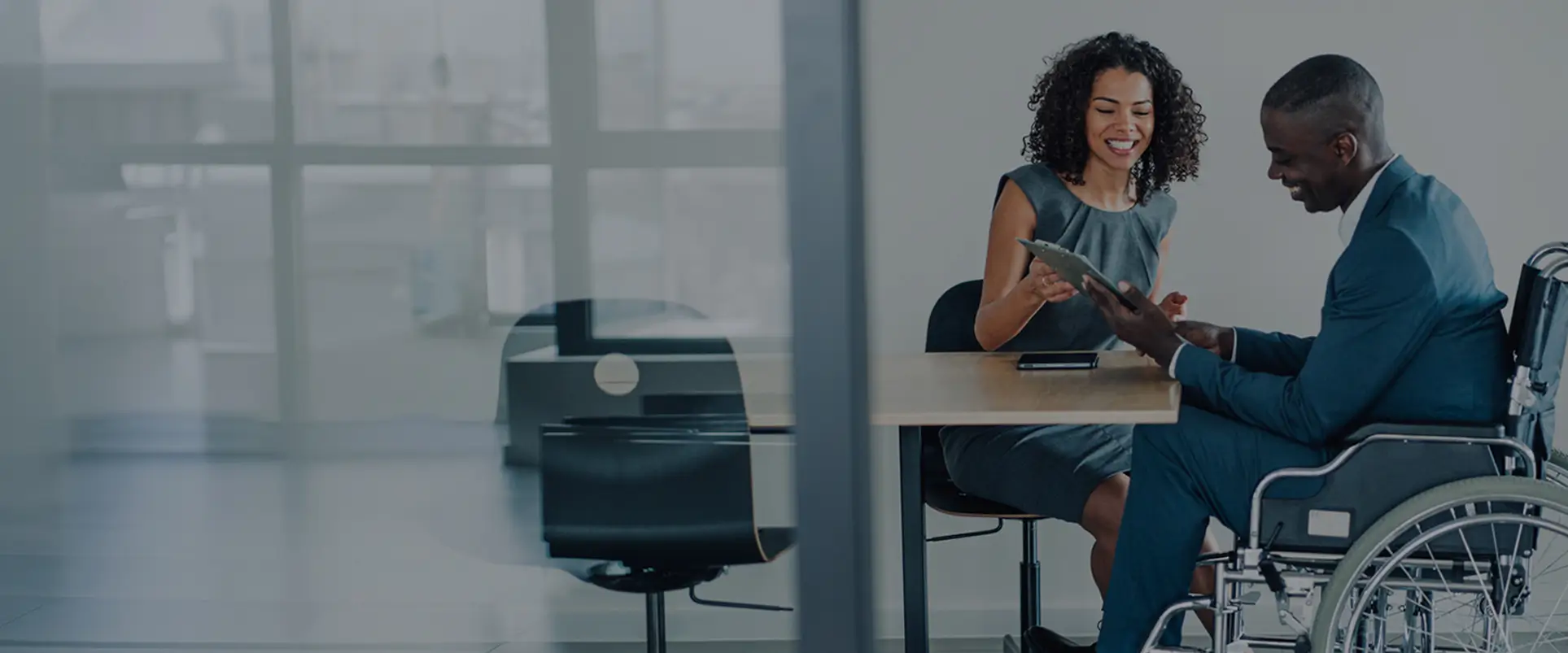
We are in it together

Helping People Rebuild Their Lives After Injury
A severe spinal cord injury or severe back injury can result in additional illness and life-long disabilities. It may cause a loss of mobility as well as independence. Many people are unaware of the spine’s strength and underestimate the role it plays in our bodies. Even if you only have a minor ache after an accident, it is critical to have your back and neck examined. Back and spine injuries can take some time to diagnose, but they should never be ignored.
If you or a loved one has suffered a spinal cord injury as a result of someone else’s negligence or other misconduct, our lawyers want to help. We can assist you in filing a personal injury claim to help pay for your medical expenses. Contact a North Carolina spinal cord and back injury attorney from the Ricci Law Firm when you are ready to take legal action.
Navigating the Challenges of Catastrophic Injury
We represent clients in catastrophic injury cases caused by severe accidents, medical malpractice, or other acts of negligence. Our team helps clients recover compensation for extensive medical care, rehabilitation, and long-term disability needs.
Additionally, we pursue third-party claims for additional compensation and assist clients in navigating the complexities of securing benefits for permanent disabilities, ensuring they receive the financial support necessary for their recovery and future stability.
All Related Practice Areas:
Why You Need a Spine and Back Injury Attorney?

How Can Spine and Back Injury Attorneys Help You?
- Extensive Experience: Thousands of back and spine injury cases handled, ensuring insurance companies are held accountable.
- Comprehensive Case Evaluation: Attorneys collaborate with doctors to assess the full impact of your injuries on your future.
- Maximum Compensation: Lawyers negotiate aggressively to secure the highest possible recompense for your claim.
- Proven Advocacy: Attorneys gather facts to demonstrate your financial losses and seek restitution to help restore normalcy.
If your spine or back has been injured in an accident, you must concentrate solely on your recovery. It is critical that you take all necessary precautions to avoid future harm. Dealing with a stressful lawsuit on top of your rehabilitation can be overwhelming, and you should be concentrating solely on your recovery.
A spinal cord injury lawyer will work with you and your doctors to determine the full extent of your impairments and how they will impact your life in the future.
Your attorney will then negotiate on your behalf to obtain the best possible compensation for each component of your claim. You can relax knowing that your best interests are being pursued aggressively.
The severity of your spinal cord injury will influence the costs and amount of compensation you receive. The vast majority of spinal cord injuries necessitate long-term care, which can be costly. A good back injury lawyer will gather all of the necessary information to prove how much money you have lost as a result of your injury. They intend to use it to seek just compensation and, ideally, a return to normalcy.
Defining Spinal Cord and Back Injuries
Back injuries are not the same as spinal cord injuries. Back injuries affect bones or soft tissue but not the spinal cord, which transmits neurological signals from the brain to your muscles.
When the nerves in the peripheral muscles are unable to communicate with the brain, a spinal cord injury results in the loss of essential functions. This can have an impact on bladder and bowel function, as well as muscle movement, reflexes, and sensation.
The majority of spinal cord injuries are caused by a sudden blow to the back, which fractures the bones and damages the nerves. A complete spinal cord injury causes total paralysis below the level of the injury. If the injury is only partial, one or both sides of the body will still function.
Types of Spinal Cord Injuries
A spinal injury is defined as a spinal injury that requires immediate medical attention, surgery, or treatment, or therapy. A spinal injury can cause both physical and financial hardship. Medical care and rehabilitation costs, lost wages, and pain and suffering must all be properly compensated for following a spinal cord injury caused by an accident.
The spinal cord is a network of nerves that connects your brain to the rest of your body and directs movement. Acute spinal cord injury (SCI) is a common traumatic injury that can bruise, partially tear, or completely destroy the spinal cord, resulting in permanent disability.
It’s worth noting that a full spinal injury causes no movement or sensation below the point of damage, whereas an incomplete injury causes some sensation. The two most common types of spinal injuries are as follows:
- Paraplegia is a condition that causes both the legs and the lower body to lose function.
- Quadriplegia, also known as tetraplegia, is characterized by a loss of movement and function in the arms, legs, hands, trunk, and pelvic organs.
In addition to the two basic overviews of quadriplegia and paraplegia, there are more distinct categories of spinal cord injuries that can occur. The level of spine injury refers to the location of the injury along the spinal column/cord. The higher the risk, the more serious the injury (closer to the brain stem). The vertebrae are divided into five zones (Cervical, Coccyx, Lumbar, Sacrum, and Thoracic), each of which describes the severity of the spinal injury.
Types of Back and Spine Injuries
While there are numerous causes of back pain and injuries to the back, the most common types of back injuries are sprains and strains, herniated or bulging discs, and fractured vertebrae. Strains are frequently caused by twisting or pulling a muscle or tendon in your back.
A sprain is typically caused by a fall, a sudden twist, or trauma that forces a joint out of its normal position. A fractured vertebra, also known as a compression fracture, is a crack or gap in the vertebral column. It is frequently caused by the spine aging and weakening, but it can also be caused by trauma to the spine or a fall.
A herniated or bulging disc is another common back injury. This happens when the rubbery cushions (discs) between your vertebrae fail. A disc is frequently compared to a jelly donut, with a softer center inside a tougher shell. A herniated disc happens when the softer “jelly” pushes through a tear in the disc’s exterior. This can irritate nearby nerves, resulting in painful symptoms.
Proving Fault After a Spinal or Back Injury
If you were injured in an unintentional accident and suffered a spinal cord injury, you may need to prove your injury in order to file an insurance claim or a personal injury lawsuit. Experienced back injury attorneys and spinal injury attorneys can help guide you through the steps required to prove your claim and gain compensation.
Following an accident that was not your fault, opposing counsel may attempt to argue that your spinal cord injury was not caused by the accident. They may instead claim it was a pre-existing injury. These are the five steps you can take to demonstrate that your spinal cord injury was caused by the accident.
- After Accident Evidence: After an accident, it is important not to post anything on social media about your injury or to tell “your side of the story” to any adjusters. You never want to admit any fault in the matter or to say something like, “it isn’t that bad.” Any statements or evidence after an accident can affect the claim process.
- Employment Records: Injuries to the spinal cord frequently result in a loss of function and sensation. This can have an impact on your ability to perform your job duties. This disability will be documented in employer records and employer insurance records. If your employers do not have a record of a disability prior to the accident, it helps to document when the injury occurred.
- Medical Bills and Records: Spine and back injury lawyers can obtain medical records from before the accident as well as records from your post-accident examination. Pre-accident physician notes and insurance claims will show proper documentation of any spinal cord injury that existed at the time.
- Photos and Videos of the Injury: Videos and photos of activities prior to the accident can help document the physical state prior to the accident as well as any loss of physical function that may have occurred as a result of the accident. These can be used with photos and videos taken from the scene and later after the accident to show a before and after.
- Witness Testimony from the Scene: Friends, family, coworkers, and acquaintances can testify that you had no loss of function prior to the accident. Witness testimony from those same people about your abilities following the accident can help establish your injury claim.
It is important to keep as much evidence as one can. The more evidence, the more proof someone will have to show that the injury sustained was from a specific accident. Even if a person has a prior back issue or problems, that does not mean that they won’t be able to prove fault. It just means they may need more evidence to help build their case.
Statistics for Back and Spinal Cord Injuries
According to a recent estimate, the annual incidence of spinal cord injury (SCI) in the United States is approximately 54 cases per one million people, or approximately 17,810 new each year. Cases of new SCI do not include those who died at the scene of the accident that caused the injury.
Vehicle accidents are the most recent leading cause of injury, followed closely by falls. According to the same data, acts of violence (primarily gunshot wounds) and sports/recreation activities are also relatively common causes.
According to the WHO, between 250 000 and 500 000 people worldwide suffer a spinal cord injury each year (SCI). The majority of spinal cord injuries are caused by avoidable causes such as car accidents, falls, or violence.
People with a spinal cord injury are up to five times more likely than people without a spinal cord injury to die prematurely, with lower survival rates in low- and middle-income countries. Spinal cord injury has been linked to lower rates of school enrollment and job output, as well as significant individual and societal costs.
Types of Damages One Can Collect After a Spinal or Back Injury
In a spinal injury compensation payout case, damages include both economic and non-economic damages or intangible suffering. Economic damages include medical bills, lost wages, and any other measurable losses resulting from the injury. To put it another way, the things you can touch, taste, and feel.
Non-economic damages are issues that affect one’s quality of life, such as emotional distress, lifestyle changes, and the inability to participate in favorite activities. These are more difficult to quantify, but they are critical in assessing the entire scope of a back injury compensation case.
Victims of spinal cord and back injuries may believe they are only entitled to compensation for their medical expenses and lost wages, but it is critical to consider all of your losses. Although nothing can take away your physical pain and difficulties, a fair settlement can help you and your family.
Medical Expenses in Damage Estimation
Medical bills for the initial injury can run into hundreds of thousands of dollars. However, because spine and back injuries frequently necessitate lifetime treatment, you must factor in these costs as well.
Informed back and spine injury lawyers will consult with medical life care planning experts to assess a client’s likely future needs, and we will factor those costs into their compensation claim. Covering past and future medical care is critical because back-related medical debt can devastate an already bereaved family.
All current and future medical expenses can be accounted for when seeking damages in a personal injury lawsuit. This includes all medicals, therapy, and testing.
Damages for Lost Wages and Future Wages
If a person is able to return to work, back injury lawyers can assist them in obtaining the wages they would have earned during their recovery. However, the majority of back and spine injuries result in a partial or total loss of wage-earning capacity. A person may be able to work only part-time or may be forced to accept a lower-paying job. In severe cases, the victim is unable to work at all.
When calculating damages, consultants can determine what the client physically can and cannot do, providing an estimate of their work capacity. Current pay stubs and the typical outlook of someone in the same position can also be used to forecast future earnings.
Pain and Suffering
Depending on the severity of the injury, a person may be unable to walk, be confined to a wheelchair, struggle with bowel and bladder control, and experience sexual dysfunction.
Each of these issues necessitates its own set of doctor’s appointments, medications, physical therapy, and other treatments. The costs and level of suffering increase even more for those confined to a wheelchair or a bed, as they require a higher level of care.
People frequently overlook the mental anguish that comes with a spinal cord injury. Victims may find it difficult to express their internal grief and frustration. Non-economic damages can account for this type of mental anguish.
Average Compensation for Spinal Injuries
The severity of your spinal cord injury will determine your costs and the amount of compensation you are entitled to. The majority of spinal cord injuries necessitate extensive treatment, and the bill can be exorbitant. The average cost of treatment for a spinal injury in the United States can range from $340, 787 to $1,044,097 in the first year, and the cost of treatment in subsequent years can range from $41,393 to $181,328.
- These treatments and costs are included in the figures above:
- Immediate attention
- Surgical expenses
- Rehabilitation
- Assistive technology
- Living requirements
- Medication
When a spinal injury occurs, additional costs must be considered. Loss of income, inability to earn future wages, and pain and suffering should all be considered. If your spinal injury happened at work, you can file a workers’ compensation claim as well as a private lawsuit. You cannot recover for pain and suffering in a workers’ compensation claim.
Catastrophic Injury FAQs
Catastrophic injury claims can be complex, presenting numerous legal challenges that may feel overwhelming, especially while recovering and coping with the long-term impact of the injury.
To assist you, we’ve compiled answers to some of the most common questions our clients have about catastrophic injury cases. Read on to learn more about your rights and explore your options for securing compensation.

When you think of a whiplash injury, most think about the pain caused by their head being jerked in a new direction against the will during an automobile a...
It can be easy to feel like your personal injury case is taking forever. There seems to be a snag at every turn you take toward a resolution. You can’t help but wonder if there’s a way ...

Hiring the Back and Spine Injury Attorneys at Ricci Law Firm
If you suffer a back injury at work, you can expect a battle with the workers’ compensation insurance company. They will frequently try to persuade your doctor to release you from work early, and they will also refer you to their own doctor for an independent medical exam.
It is important you know your rights and the correct claims to file after a back or spine injury while on the job. Our back and spine injury attorneys can help with accidents in and out of the workplace to get you the compensation you deserve.
If you or a loved one experience a back or spine injury through someone else’s negligence or while at work, contact our attorneys for a free consultation. Contact Ricci Law Firm Injury Lawyers today for a free consultation using our online form.


